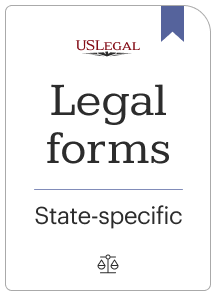

This form is a sample affidavit from an alleged domestic abuse victim swearing that the accused was under the influence of medication mixed with alcohol at the time of the alleged incident and requesting that because defendant did not know the harm in mixing the substances, he was not conscious of the wrongdoing and the case should be dismissed. Adapt to fit your circumstances. The Florida Affidavit by Victim for Dismissal is a legal document used in the state of Florida in certain criminal cases. It is filed by the victim of a crime who wishes to have the charges against the defendant dismissed. This affidavit serves as a formal statement from the victim declaring their desire to drop the case or no longer pursue legal action. In order to provide a detailed description of the Florida Affidavit by Victim for Dismissal, it is important to highlight relevant keywords: 1. Legal Document: The Florida Affidavit by Victim for Dismissal is a legal document recognized by the Florida court system. 2. Victim's Consent: This affidavit is filed by the victim of a crime, indicating their consent or wish to have the charges against the defendant dropped. 3. Criminal Cases: The affidavit is applicable only to criminal cases where the victim is seeking to dismiss the charges. 4. Statement: This affidavit serves as a formal statement given under oath by the victim, explaining their decision to dismiss the case and no longer pursue legal action. 5. Intent: The purpose of the affidavit is to clearly express the victim's intention to have the charges dismissed, ensuring that it follows the appropriate legal procedures. 6. Dismissal of Charges: The primary outcome sought through this affidavit is the dismissal of charges against the defendant, effectively closing the case. 7. Legal Requirements: The affidavit must meet specific legal requirements and be properly formatted to be accepted by the court. 8. Consent and Voluntaries: The affidavit highlights that the victim's decision to dismiss the case is voluntary and made without coercion or undue influence. Additionally, it should be noted that there are no specific types of Florida Affidavit by Victim for Dismissal. The document serves the same purpose regardless of the nature of the crime or the victim's circumstances.
The Florida Affidavit by Victim for Dismissal is a legal document used in the state of Florida in certain criminal cases. It is filed by the victim of a crime who wishes to have the charges against the defendant dismissed. This affidavit serves as a formal statement from the victim declaring their desire to drop the case or no longer pursue legal action. In order to provide a detailed description of the Florida Affidavit by Victim for Dismissal, it is important to highlight relevant keywords: 1. Legal Document: The Florida Affidavit by Victim for Dismissal is a legal document recognized by the Florida court system. 2. Victim's Consent: This affidavit is filed by the victim of a crime, indicating their consent or wish to have the charges against the defendant dropped. 3. Criminal Cases: The affidavit is applicable only to criminal cases where the victim is seeking to dismiss the charges. 4. Statement: This affidavit serves as a formal statement given under oath by the victim, explaining their decision to dismiss the case and no longer pursue legal action. 5. Intent: The purpose of the affidavit is to clearly express the victim's intention to have the charges dismissed, ensuring that it follows the appropriate legal procedures. 6. Dismissal of Charges: The primary outcome sought through this affidavit is the dismissal of charges against the defendant, effectively closing the case. 7. Legal Requirements: The affidavit must meet specific legal requirements and be properly formatted to be accepted by the court. 8. Consent and Voluntaries: The affidavit highlights that the victim's decision to dismiss the case is voluntary and made without coercion or undue influence. Additionally, it should be noted that there are no specific types of Florida Affidavit by Victim for Dismissal. The document serves the same purpose regardless of the nature of the crime or the victim's circumstances.